Core team
The core team of the Ghent Time Machine is composed of five research (and development) groups from Ghent University that regularly work together: the Henri Pirenne Institute for Medieval Studies (HPIMS), the Ghent Centre for Digital Humanities (GhentCDH), Cartography & GIS (CARTOGIS), the Internet Technology and Data Science Lab (IDLab), and the Database, Document and Content Management group (DDCM). Together, they represent the most significant expertise in research on the crossroads of cultural heritage and ICT. Fields of study include the interdisciplinary fundamental research into the past and its heritage, the digital transformation of SSH research, historical cartography, and ICT research fields including Big Data information management and processing (hybrid and automated data science), spatiotemporal data analysis and visualization, Semantic Web technology, Computer Vision, and Linked Data.
All key researchers are experienced in heritage projects, ranging from medieval manuscripts to present day digital-born data.
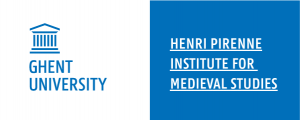
![]()
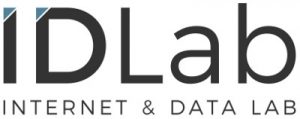
![]()
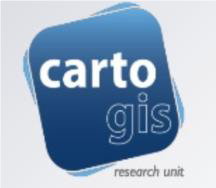
Key people
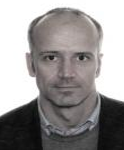 Prof. dr. Jeroen Deploige. Professor of Medieval History, specialized in the cultural, social and religious history of the high medieval Low Countries and adjacent regions. He is the director of the database projects Diplomata Belgica and Narrative Sources, supervizes PhD research on the application of stylometry in historical research and is the spokesperson of the Pirenne Research Consortium for Societal Impact at Ghent University (Medieval Studies). Jeroen Deploige is Ghent University’s main representative in the European Time Machine consortium.
Prof. dr. Jeroen Deploige. Professor of Medieval History, specialized in the cultural, social and religious history of the high medieval Low Countries and adjacent regions. He is the director of the database projects Diplomata Belgica and Narrative Sources, supervizes PhD research on the application of stylometry in historical research and is the spokesperson of the Pirenne Research Consortium for Societal Impact at Ghent University (Medieval Studies). Jeroen Deploige is Ghent University’s main representative in the European Time Machine consortium.
 Prof. dr. Christophe Verbruggen. Professor at the research unit Social History since 1750, specialized in the social history of intellectuals and cultural mobility in the 19th and 20th century. Verbruggen is the director of the Ghent Centre for Digital Humanities and of CLARIAH-Flanders, the Flemish joint node of the European DARIAH and CLARIN research infrastructures. He is currently working on the history of social and cultural reform movements and the development of virtual research environments for the study of transnational and entangled history.
Prof. dr. Christophe Verbruggen. Professor at the research unit Social History since 1750, specialized in the social history of intellectuals and cultural mobility in the 19th and 20th century. Verbruggen is the director of the Ghent Centre for Digital Humanities and of CLARIAH-Flanders, the Flemish joint node of the European DARIAH and CLARIN research infrastructures. He is currently working on the history of social and cultural reform movements and the development of virtual research environments for the study of transnational and entangled history.
 Prof. dr. Guy De Tré. Professor and head of the Database, Document and Content Management (DDCM) research group at Ghent University. He specializes in computational intelligence techniques for information management systems (e.g. imperfect information, big data issues, etc.). He coordinates the European Eusflat Working Group on Soft Computing in Database Management and Information Retrieval (SCDBMIR).
Prof. dr. Guy De Tré. Professor and head of the Database, Document and Content Management (DDCM) research group at Ghent University. He specializes in computational intelligence techniques for information management systems (e.g. imperfect information, big data issues, etc.). He coordinates the European Eusflat Working Group on Soft Computing in Database Management and Information Retrieval (SCDBMIR).
 Prof. dr. Philippe De Maeyer. Professor and head of the Department of Geography at Ghent University, specialized in cartography and GIS-science & Systems. Co-chair of the innovation center i-KNOW at Ghent University, which incubates the licensing and spin off activity of the research in intelligent information processing. His unit is applying its technology on cultural heritage (carto-heritage and 3D visualisation of built heritage, globes, …).
Prof. dr. Philippe De Maeyer. Professor and head of the Department of Geography at Ghent University, specialized in cartography and GIS-science & Systems. Co-chair of the innovation center i-KNOW at Ghent University, which incubates the licensing and spin off activity of the research in intelligent information processing. His unit is applying its technology on cultural heritage (carto-heritage and 3D visualisation of built heritage, globes, …).
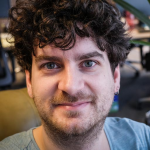 Prof. dr. Ruben Verborgh. Professor of Semantic Web technology at IDLab, a group of Ghent University/imec, and research affiliate at the Decentralized Information Group of CSAIL at MIT (MA, USA). He specializes in semantic web technologies, decentralization, Linked Data and web APIs. Verborgh is part of renowned international projects such as Linked Data Fragments, Solid and RESTdesc.
Prof. dr. Ruben Verborgh. Professor of Semantic Web technology at IDLab, a group of Ghent University/imec, and research affiliate at the Decentralized Information Group of CSAIL at MIT (MA, USA). He specializes in semantic web technologies, decentralization, Linked Data and web APIs. Verborgh is part of renowned international projects such as Linked Data Fragments, Solid and RESTdesc.
 Prof. dr. Steven Verstockt. Multimedia professor at the Department of Electronics and Information Systems. He specializes in Computer Vision, data structure and algorithms and human-computer interaction. As a researcher at Ghent University (IDLab) and Imec, Verstockt is involved in several collaborative projects on the crossroad of top tech and SSH, particularly in the field of cultural heritage. Examples include UGESCO, EURECA, Flore de Gand, Museum in de living, and the CHANGE network.
Prof. dr. Steven Verstockt. Multimedia professor at the Department of Electronics and Information Systems. He specializes in Computer Vision, data structure and algorithms and human-computer interaction. As a researcher at Ghent University (IDLab) and Imec, Verstockt is involved in several collaborative projects on the crossroad of top tech and SSH, particularly in the field of cultural heritage. Examples include UGESCO, EURECA, Flore de Gand, Museum in de living, and the CHANGE network.
Representative publications
- Baker K. & Verstockt S., ‘Cultural heritage routing : a recreational navigation-based approach in exploring cultural heritage’, ACM JOURNAL ON COMPUTING AND CULTURAL HERITAGE, 10:4 (2017) 1 – 24
- Billiet C., Van de Weghe N., Deploige J. & De Tré G., ‘Visualizing and reasoning with imperfect time intervals in 2D’, IEEE. Transactions on fuzzy systems, 25:6 (2017) 1698 – 1713
- De Roo B., Lonneville B., De Wulf A., Bourgeois J., De Maeyer P., ‘From virtual globes to ArcheoGIS: determining the technical and practical feasibilities’, Photogrammetric Engineering and Remote Sensing, 82: 9 (2016) pp. 677 – 685
- De Roo B., Stal C., Lonneville B., De Wulf A., Bourgeois J. & De Maeyer P., ‘Spatiotemporal Data as the Foundation of an Archaeological Stratigraphy Extraction and Management System’, Journal of Cultural Heritage, 19 (2016) 522–530
- Devos I., Wiedemann T., Demey R., Vrielinck S., De Veirman S., De Maeyer P., Ranson E. et al., ‘STREAM (Spatiotemporal Research Infrastructure for Early Modern Brabant and Flanders) : Sources, Data and Methods’, International Journal of Humanities and Arts Computing, 12:2 (2018) 102–119
- Kestemont M., Moens S. & Deploige J., ‘Collaborative Authorship in the Twelfth Century: a Stylometric Study of Hildegard of Bingen and Guibert of Gembloux’, Digital Scholarship in the Humanities 30:2 (2015) 199–224
- Rodriguez Echeverría J., Semanjski I., Gautama S., Van de Weghe N. & Ochoa D., ‘Unsupervised Hierarchical Clustering Approach for Tourism Market Segmentation Based on Crowdsourced Mobile Phone Data’, Sensors, 18:9 (2018) n.pag. print.
- Van Hooland S., De Wilde M., Verborgh R., Steiner T, & Van de Walle R., ‘Exploring Entity Recognition and Disambiguation for Cultural Heritage Collections’, Digital Scholarship in the Humanities, 30:2 (2015) 262–279
- Van Hooland S. & Verborgh R., Linked Data for Libraries, Archives and Museums (Facet Publishing, 2014)
- Verborgh R., Vander Sande M., Hartig O., Van Herwegen J., De Vocht L., De Meester B., Haesendonck G. & Colpaert P., ‘Triple Pattern Fragments: a Low-cost Knowledge Graph Interface for the Web’, Journal of Web Semantics, 37–38 (2016) 184–206
- Verstockt S., Gerke M. & Kerle N., ‘Geolocalization of Crowdsourced Images for 3-D Modeling of City Points of Interest’, IEEE. Geoscience and Remote Sensing Letters, 12:8 (2015) 1670 – 1674
- Verstockt S., Nop S., Vandecasteele F., Baert T., Van de Weghe N., Paulussen H. et al., ‘UGESCO – A hybrid platform for geo-temporal enrichment of digital photo collections based on computational and crowdsourced metadata generation’, in M. Ioannides et al. (eds.), Digital heritage. Progress in cultural heritage : documentation, preservation, and protection (Cham: Springer, 2018) 113 – 124
Partnerships
The core team can rely on the support of several other research units within Ghent University. Prominent partners include:
- Intelligent Systems Engineering and Product Design, department at the Faculty of Architecture and Engineering whose researchers are experts in R&D innovation and collaborations with industry. Specific expertise in smart city technology and open platforms for data flow.
- iKNOW, an innovation and business development center that specializes in Intelligent Information Processing. Home of several spin off companies, including Gatewing (Mapping with Micro Unmanned Aerial Systems), GeoInvent (High Precision Mobile Mapping) and Gate (Archaeological Surveying).
- Quetelet Center, an interdisciplinary knowledge center at Ghent University that specializes in quantitative historical research and particularly in (Belgian) socio-economic history and the distribution of wealth and realty.
- Institute for Public History (IPG), an interuniversity initiative that provides education, research and services on the role of history in society, including an important science communication component. The IPG has a strong(er) focus on contemporary history.
- Ghent University Library: one of the largest libraries in Belgium, with a collection of over 3 million titles. It is also an important heritage library due to its large special items collection, among which for example several medieval manuscripts designated as ‘Masterpieces of Flemish Heritage’. The library is a partner in several international Open Access initiatives and many research projects.
- Flemish Supercomputer Centre (VSC): a virtual service and expertise centre making supercomputer infrastructure available for researchers and industry. The VSC is directed by the Research Foundation – Flanders and the five Flemish university associations. The Tier-1 Flemish Super Computers are based in a Ghent University facility.
The Ghent Time Machine Team is well-connected with different societal partners and research users that together cover the quadruple helix (Government, Industry, Civil Society, Academia), in Flanders and Belgium as well as internationally. There is regular collaboration with major institutions in the GLAM sector (Galleries, Libraries, Archives and Museums), the social and cultural sector (e.g. life-long-learning organisations), different levels of government and policy-making (including municipalities, the Flemish Parliament and several governmental departments and agencies), city and regional tourism, and industry (including data management, e.g. Dynactionize)